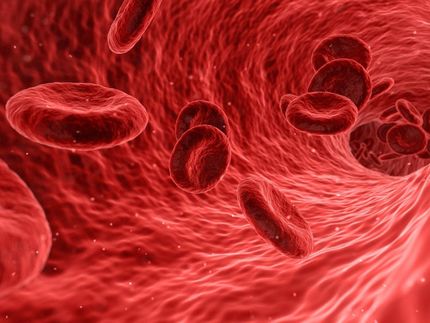One cell's meat is another cell's poison
Advertisement
Janus kinases (JAKs) are proteins that can promote the growth of cancer cells. The protein JAK2 is of special therapeutic significance: its inactivation is believed to destroy cancer cells. However, the effect of JAK2 inhibition on healthy blood stem cells is so far unknown. Scientists at the Vetmeduni Vienna show that the loss of JAK2 in the mouse causes healthy blood stem cells to disappear while cancer cells preserve their growth potential. Future studies will address the question as to whether these data can be passed on to treatment in humans.
As a new therapeutic approach, Janus kinases are currently in the limelight of cancer research. The focus of interest is the protein JAK2. By inhibiting this protein one tries to cure chronic bone marrow diseases, such as myelofibrosis and chronic myeloid leukemia (CML).
Loss of JAK2 is advantageous for leukemia cells
Scientists working with Veronika Sexl at the Institute of Pharmacology and Toxicology may initiate a transformation of thought in regard of JAK2 inhibition. To simulate the human disease as accurately as possible, the scientists used a mouse leukemia model. In an experiment, mice received blood cancer cells as well as healthy hematopoietic stem cells in which JAK2 had been removed. "In mice, the absence of JAK2 accelerated the course of leukemia drastically," the scientists concluded.
The loss of JAK2 caused healthy hematopoietic stem cells to disappear in mice. "Leukemic cells, on the other hand, remained entirely unaffected; they do not need JAK2. This led to an imbalance in which the number of leukemia cells was very predominant, and eventually caused the acceleration of leukemia," says Eva Grundschober, one of the lead authors.
"The oncogene BCR-ABL, which was present in mice with leukemia, does not appear to require JAK2 for its activity. However, JAK2 is essential for healthy cells," explains Andrea Hölbl-Kovacic, the other lead author.
JAK2 is important for survival of hematopoietic stem cells
A closer investigation of healthy stem cells supports this hypothesis. In the absence of JAK2, healthy stem cells cannot survive and reproduce blood cells. As the next step, the following question will be raised in Sexl's laboratory: how does JAK2 mediate its life-sustaining effect on healthy stem cells? What portions of the JAK2 protein are required for this purpose and are these affected by current therapies?

























































